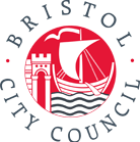Bristol scientists to study how Porcupine could improve heart surgery
Scientists at the University of Bristol are to study how stopping Porcupine – a protein named after the spiky rodent - could improve heart surgery. Professor Sarah George has been awarded £140,000 to investigate if blocking the protein could help people
- 26th March 2018
Scientists at the University of Bristol are to study how stopping Porcupine – a protein named after the spiky rodent – could improve heart surgery.
Professor Sarah George has been awarded £140,000 to investigate if blocking the protein could help people who are having heart bypass surgery.
In heart disease, fatty material builds up in the walls of blood vessels restricting the flow of blood to the heart. This can be treated by bypass surgery where a piece of vein is taken from the leg and used to circumvent the blockage and restore blood flow. Around 16,000 coronary artery bypass graft operations are carried out in the UK each year.
However, the procedure does not always work for long as the newly grafted vein can thicken, narrowing the vein. Professor George and her team at the Bristol Medical School (THS) and Bristol Heart Institute are working on a way to prevent this.
Previous research carried out in her laboratory has shown that molecules called Wnts play a key role in the thickening of the grafted vein. Specifically, they found that the molecule Wnt4 caused blood vessel cells to increase in number, while a second molecule, Wnt2, made the cells move to the site of the graft causing the thickening.
The activity of Wnt2 and Wnt4 is controlled by a protein called Porcupine. In this project, Professor George will test whether blocking this protein can prevent vein narrowing in mice and human veins.
The results could identify whether Porcupine-blocking drugs can prevent vein graft failure in people with heart disease.
Sarah George, Professor of Cardiovascular Signalling from the Bristol Medical School (THS) and Bristol Heart Institute, said:
“Bypass surgery is one of the most important surgical procedures for treating heart attack, but it’s not as successful as we’d like.
“When the vein is grafted in, it inevitably causes damage and creates inflammation. The body tries to repair the damage by producing new cells to line the walls of the vein. This process thickens the vein, reproducing the problem that doctors were first trying to address.
“But by blocking the signal to produce new vein cells, we believe the narrowing process can be prevented.
“If successful, it may provide us with a way of improving the success of bypass surgery and helping the thousands of people who have the operation each year.”
Dr Subreena Simrick, Senior Research Advisor at the BHF, said: “Currently, there’s no way of stopping the narrowing that occurs in some bypass patients.
“This important project could, for the first time, identify a mechanism which can be targeted to stop vein grafts failing.
“Research like this, funded by the public’s donations, is central to winning the fight against heart disease, and making the advances that could ultimately save and improve lives.”






